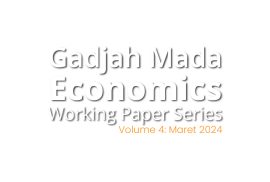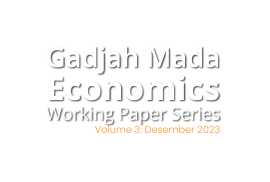Abstract
Poverty in Indonesia remains a critical issue, with a current rate of 9.57% that has not met the RPJPN target of 6.5% to 7.5%. This study analyzes the impact of mandatory government spending in education, health, and infrastructure on poverty from 2011 to 2022, using Generalized Method of Moments (GMM) with data from 33 provinces. Findings indicate that spending in education and health significantly reduces poverty, while infrastructure spending does not show a notable effect. To effectively combat poverty, the research recommends that the central government optimize its allocation of mandatory spending and enhance funding in other areas to achieve better outcomes.


